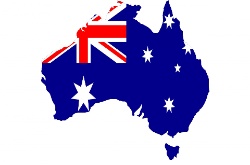Pacific Week Of Agriculture & Forestry: The Pacific Kava Sector Anticipates Export Growth And Eyes Major Global Markets.
Pacific kava is in high demand, after the opening of Australian markets to commercial imports, raising hopes for increased interest across other global markets in Asia, North America, and the European Union.
Pacific kava exporters and farmers showcased this growth potential at the Pacific Week of Agriculture and Forestry (PWAF) taking place from 6-10 March in Nadi, Fiji.
The “Pacific Kava: Rooting the industry in exports” event was organised by the Pacific Community (SPC) in collaboration with the Pacific Islands Forum Secretariat (PIFS) and funded by the European Union through the Safe Agricultural Trade Facilitation through Economic Integration in the Pacific (SAFE Pacific) project. Public and private sector stakeholders, Pacific government representatives, non-governmental organisations, farmers, and exporters from across the region took part.
Assistant Minister-Office of the Prime Minister for Fiji, Sakiusa Tubuna, explained that kava is a significant commodity for the Pacific Islands culturally, socially and economically. “In 2021, Fiji exported $ 41.9 million worth of kava. It is one of our largest agricultural exports,” he said during his opening address.
“Today, the interest in Kava is not exclusive to Pacific people. There’s been a transition over the past few decades, where the plant has become a growing export commodity. We’ve seen this Pacific plant go beyond being a cultural beverage - with kava-infused food and even entry into pharmaceuticals.”
The event provided a space to reflect on the progress of the kava sector nationally, with several Pacific countries reporting on their current kava status, as well as regionally.
Fiji’s Greengold Kava Managing Director Praveen Narayan said when Australia opened its market, the number of exporters increased. “We have 375 kava exporters registered in Fiji mainly due to our vuvale (family relationship) with Australia and this has increased from 114 exporters in September last year.”
Samoa Kava exporter Eddie Wilson said it was important to look at past experiences when kava was first banned by European markets, and the regional effort to regain market access by improving local kava standards for processing and exporting it as a safe food commodity.
“The success of the kava was because we had huge markets for kava extract and medicinal markets. Really, the future lies in working with our partners, the European Union and Germany and promote kava extracts in the medicinal markets and increase recognition of kava as a safe commodity.”
A key update at the side-event was the announcement of the Regional Kava Strategy launch that will be taking place in July. The development of the strategy is being led by PIFS, with plans to organise Kava Strat Working Group meetings followed by Regional Socialization before being presented to the Validation Workshop.
The growing export market for kava in Vanuatu, Tonga and Fiji has led to a fledgling sector in traditionally non-kava drinking countries such as the Solomon Islands.
“We’re starting to look at how we can ensure proper accreditation for our facilities and promote proper manufacturing practices that align to international standards,” said Solomon Islands Kava Industry Chairperson Wale Tobata “We are also thinking of developing a national kava strategy and a business plan.”
The Solomon Islands is currently exporting processed kava to Micronesia and unprocessed kava to the United States.
“We are grateful to be able to meet with Pacific leaders, our development partners, and the European Union to have these critical discussions to strengthen regional collaboration on the kava sector, and to recognise it as a mainstay of the agricultural commodity,” said Dr. Viliami Kami, SPC Land Resources Division Markets for Livelihoods Programme Manager. “PWAF sheds light on Pacific solidarity towards improving the livelihoods of our people and it is spaces like these where we’re able to strategise and reflect on how we strengthen our collaborative efforts in this sector.”


 Australian Catholic University: Principals Navigate Growing Challenges As Anxiety, Depression Increase And Violence, Workloads Intensify
Australian Catholic University: Principals Navigate Growing Challenges As Anxiety, Depression Increase And Violence, Workloads Intensify SNAP: Survivors Deliver Vos Estis Lux Mundi Complaints Against Six Cardinals To Vatican Secretary Of State Parolin
SNAP: Survivors Deliver Vos Estis Lux Mundi Complaints Against Six Cardinals To Vatican Secretary Of State Parolin UNICEF Aotearoa NZ: Myanmar Earthquake A Further Blow For Millions Of Children
UNICEF Aotearoa NZ: Myanmar Earthquake A Further Blow For Millions Of Children Greenpeace: 'Desperate And Deceitful'- Deep Sea Mining Frontrunner Turns Its Back On Pacific Nations
Greenpeace: 'Desperate And Deceitful'- Deep Sea Mining Frontrunner Turns Its Back On Pacific Nations 350.org: Australia Announces Election Dates, Pacific Islanders Rally To Vote For Climate
350.org: Australia Announces Election Dates, Pacific Islanders Rally To Vote For Climate UNICEF Aotearoa NZ: Global Aid Funding Cuts - 14 Million Children At Increased Risk Of Severe Malnutrition And Death
UNICEF Aotearoa NZ: Global Aid Funding Cuts - 14 Million Children At Increased Risk Of Severe Malnutrition And Death